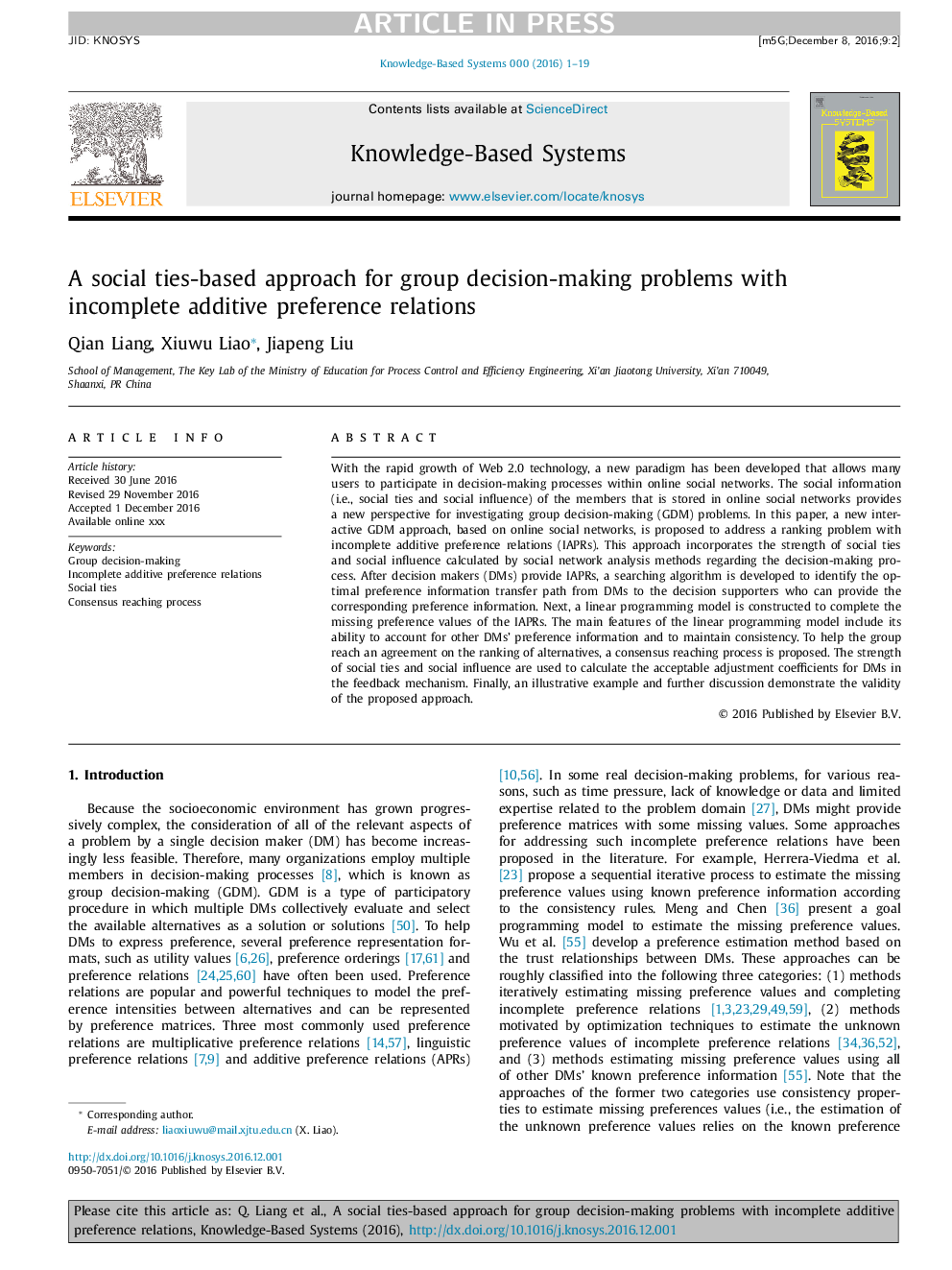ترجمه فارسی عنوان مقاله
رویکرد مبتنی بر روابط اجتماعی برای مشکلات تصمیم گیری گروهی با روابط ترجیحی افزایشی ناقص
عنوان انگلیسی
A social ties-based approach for group decision-making problems with incomplete additive preference relations
| کد مقاله | سال انتشار | تعداد صفحات مقاله انگلیسی |
|---|---|---|
| 140464 | 2017 | 19 صفحه PDF |
منبع

Publisher : Elsevier - Science Direct (الزویر - ساینس دایرکت)
Journal : Knowledge-Based Systems, Volume 119, 1 March 2017, Pages 68-86
ترجمه کلمات کلیدی
تصمیم گیری گروهی، روابط ترجیحی افزایشی ناقص، روابط اجتماعی، فرآیند هماهنگی،
کلمات کلیدی انگلیسی
Group decision-making; Incomplete additive preference relations; Social ties; Consensus reaching process;

